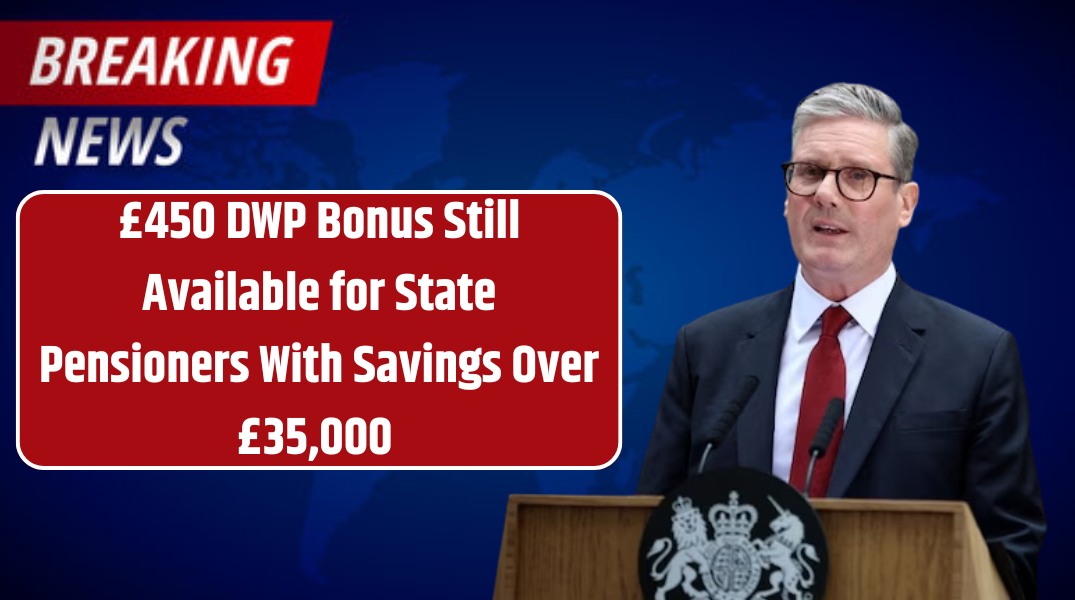Many UK retirees mistakenly believe that having substantial savings automatically disqualifies them from benefits like the Winter Fuel Payment—but that’s not the full story. Thanks to recent changes by the Department for Work and Pensions (DWP), pensioners with savings exceeding £35,000 may still qualify for up to £450 in winter heating assistance, provided their taxable income is managed carefully.
More Pensioners Now Eligible Under Updated Rules
In June 2025, the DWP, under the current Labour-led government, announced expanded eligibility for the Winter Fuel Payment in response to the cost-of-living crisis and widespread demand. As a result, nearly nine million pensioners born before 1959 could receive help this winter, regardless of how much they have tucked away in savings.
The catch? The benefit hinges on taxable income, not total savings.
The Savings Trap: Why ISAs Are a Game Changer
Tax expert Andy Wood, from Tax Natives, highlights a common pitfall: many retirees include interest from non-ISA savings accounts when calculating their income, inadvertently pushing themselves over the threshold for benefit eligibility.
“It’s not how much you have—it’s how it’s held,” Wood explained. “Interest earned outside of tax-free wrappers like ISAs can increase your taxable income and affect your entitlement to support.”
That’s why Individual Savings Accounts (ISAs) remain a smart planning tool. Interest from ISAs is tax-free and does not count toward the income limits used to determine eligibility for the Winter Fuel Payment.
As of the 2025–2026 tax year, pensioners can still deposit up to £20,000 annually into ISAs—something financial planners recommend doing before any rule changes potentially narrow this window.
Pension Deferral: A Strategy That Can Backfire
Some pensioners are tempted to defer their State Pension to increase future payouts. The government currently offers a 5.8% annual increase for each year you delay claiming. However, there’s a trade-off.
“It might seem wise on paper, but deferring your pension could cost you access to other benefits,” Wood warned. “For someone eligible for the full rate, deferring might mean missing out on £12,000 a year, and it can take many years to ‘break even.’”
Additionally, once you start receiving your larger pension, the increased income could tip you over income thresholds, making you ineligible for benefits like the Winter Fuel Payment, Pension Credit, or Council Tax support.
Interesting Insight: Timing Your Income Can Be a Game-Changer
Pensioners often overlook the power of timing income distributions. If you have a private pension, for example, you might delay withdrawals until the new tax year or take smaller amounts to stay below critical income thresholds.
Also Read – £300 Cost of Living Payment: DWP Warning Over Official Letters
Also, charitable giving and Gift Aid donations can reduce your taxable income. Even making energy-efficient upgrades to your home can qualify for incentives that lower your tax liability or bills—providing indirect financial relief during winter.
Conclusion
Even with substantial savings, pensioners can still receive the £450 Winter Fuel Payment—but only with smart income planning. With tax-free tools like ISAs, and a careful look at how and when you access funds, it’s possible to stay eligible for critical support. Before deferring your pension or making any financial moves, consult a qualified advisor to ensure your decisions align with both your long-term retirement goals and benefit access.
Frequently Asked Questions (FAQs)
1. Will having more than £35,000 in savings disqualify me from the Winter Fuel Payment?
No. Savings are not considered directly. What matters is your taxable income. If you shelter savings in an ISA, the interest won’t count against you.
2. How much is the Winter Fuel Payment in 2025?
Eligible pensioners can receive up to £450, depending on age and household circumstances.
3. What counts as taxable income for this benefit?
Taxable income includes the State Pension, private pension withdrawals, job earnings, and interest from regular savings accounts. ISA interest is excluded.
4. Should I defer my State Pension to increase payments?
Deferring increases your State Pension by 5.8% annually, but it could lead to higher taxable income down the line and may disqualify you from means-tested benefits. Weigh the long-term pros and cons carefully.
5. Are there ways to lower my taxable income in retirement?
Yes. Consider using ISAs, spreading out pension withdrawals, donating to charity through Gift Aid, and timing income across tax years to avoid threshold breaches.












